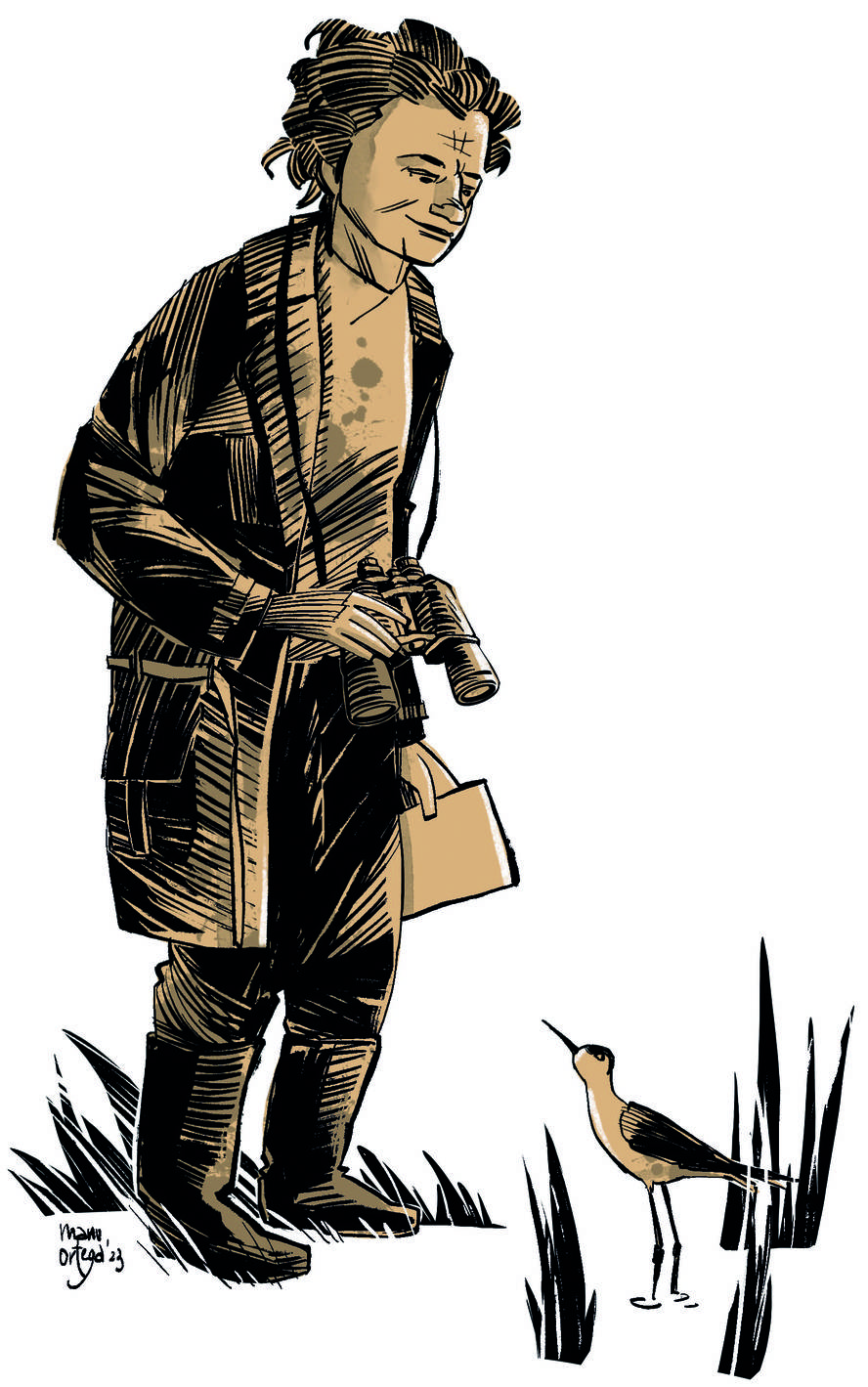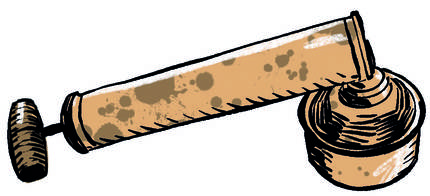Rachel Carson
“These sprays, powders and aerosols are dumped in fields of cultivation, gardens, forests and houses, and they have the ability to kill, “good” and “bad”, silence the song of birds, stop fish in rivers, cover the leaves with a lethal layer and stay on the ground, even if their natural destination is a little bit of weeds or insects. Can anyone think that this mixture of poisons can spread over the earth’s surface without harming every living thing?’
Rachel Carson wrote this in her book “Udaberri isila” (Silent Spring), which deserved the appreciation of 1926. It announced a spring in which birds killed by pesticides would be missing. It was the first notes that alerted to the ongoing ecological crisis, the first to reach the ears of society, that Carson took the birds silenced.
“They should not be called insecticides, but biocides,” Carson explains, to compare their own target with its real effects. Pesticides were used uncontrollably for everything, especially DDT (dichlorodiphenyltrichloroethane).
In 1939, it was discovered that he was killing insects. And during World War II, it was widely used to kill mosquitoes and fleas that transmitted malaria, typhus and bubonic plague. And then it became terrible. It was used in agriculture to smoke forests and house gardens.
However, gradually several researchers became aware of the dangers of DDT: it did not degrade, accumulated in living beings, entered the trophic chain, affecting other beings such as birds.
On the one hand, Carson begins to receive this information and, concerned, begins to investigate the issue. He worked for about four years, with the help of several scientists, in gathering information. “The more we knew about pesticide use, the greater my caressing was. I saw that everything that was important to me as a naturalist was in danger. And I wanted to show that my concern was well-founded,” Carson said. And he decided to write a book.
“In less than two decades synthetic pesticides have spread so widely that they are now everywhere. They have been found in most river systems, even in unknown underground currents, and on the ground, where it was thrown a dozen years earlier,” he wrote. “Fish have been found in distant mountain lagoons, underground worms, bird cracks and even humans. These chemicals are now in the bodies of most humans, regardless of their age. They are in breast milk and probably in the tissues of the unborn baby.”
“How can an intelligent being use a method for the control of a few unwanted species, which pollutes the whole environment and involves diseases and threats of value, including those of its species?” asked Carson.
It did not require a total ban on pesticides, but control of their use: ‘I am not saying that chemical insecticides are never used, but I believe that we have put poisonous substances with great biological impact in the hands of people who know little or nothing about these risks. Many people have contacted these poisons without their consent and often without them knowing anything.”
Licensed in zoology and genetics, Carson was a very competent writer. In fact, with the intention of being a writer, he started studying philology, but he dominated the taste for nature and moved on to biology. Due to family and economic problems he was unable to complete the PhD and continue the research and joined the Government’s Fisheries and Wildlife Service. The research work consisted of the creation of research works and the drafting of abstracts and texts aimed at professionals and the general public. So they joined their two hobbies: biology and writing.
He also wrote articles for newspapers, magazines and books; he wrote three about the sea. The second, The sea around us, was a success and won numerous awards, including the National Book Award. When he collected the prize he spoke: “If in the book there is poetry about the sea, it is not because I wanted to do it, but because nobody could write about the sea without poetry.”
The table put environmental problems on the table throughout its work. He wrote about monoculture farmers reducing biodiversity, the problem of invasive species, and reiterated the importance of natural balance.
Silent spring had a great influence on humanity. It raised ecological awareness in a large part of the population, as well as a strong debate.
The chemical industry faced hard the book and Carson. They said that the data was not reliable and that Carson was not a doctor but a mere technician. It is said to be a hysterical and probably communist solterone. Only thus could one understand that, despite his physical attractiveness, he had not married. Etc.
The concern and debate raised by President Kennedy prompted the Commission of Government Scientific Advisers to investigate the matter. The final report said: “Before the publication of Rachel Carson Udaberri’s book, the toxicity of pesticides was generally unknown to the Jendia.” This report confirms the ignorance of the effects of many pesticides in use.
DDT and other pesticides cited by Carson were banned in the US in June. And these prohibitions extended to other countries around the world. Carson couldn't see it. A breast cancer diagnosed during the writing of a silent spring was silenced in 1964 at the age of 56.







